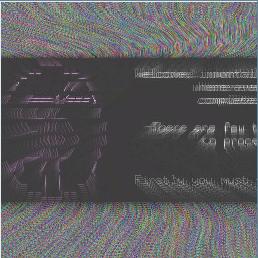Event
|
When called
|
Values set for bound conditional and action
|
<name of emotional command>
| Upon use of the given command
(e.g. if I type "happy",
it generates a happy event)
(does not work for non-predefined emotes)
|
targetCharacter1 - who called the
command
targetRoom1 - room containing
targetCharacter1
|
<name of emote-on-someoneelse command>
| Upon use of the given command
(e.g. if I type "bounce Fred",
it generates a bounce event)
(does not work for non-predefined emotes)
|
targetCharacter1 - who called the
command
targetCharacter2 - whom the command
was called upon ("Fred" in
this example)
targetRoom1 - room containing
targetCharacter1 and targetCharacter2
|
hello
| The "hello"
command.
|
targetCharacter1 - who called the
command
targetRoom1 - room containing
targetCharacter1
targetValue1 - "greetall" for normal
hellos, "greetback" for greet-back, "cow" for the cow
thing.
|
emote
| The general emote command
(not any predefined macro)
|
targetCharacter1 - who called the
command
targetRoom1 - room containing
targetCharacter1
targetValue1 - what was emoted
|
hit
| Someone hits someone else once
(not called during normal combat; see
fight below)
|
targetCharacter1 - person who throws
a blow onto targetCharacter2
targetCharacter2 - person who recieves
a blow from targetCharacter1
targetRoom1 - room containing
targetCharacter1
|
fight
| Character begins combat
(note that if two people fight each other, then the two
"strands" of combat are worked out independantly at the
moment)
|
targetCharacter1 - person who throws
blows onto targetCharacter2
targetCharacter2 - person who recieves
blows from targetCharacter1
targetRoom1 - room containing
targetCharacter1
|
password
| Character tries to change their
password
|
targetCharacter1 - who called the
command
targetRoom1 - room containing
targetCharacter1
|
drop
| Character drops an item
|
|
get
| Character picks up an object
|
targetCharacter1 - who called the
command
targetRoom1 - room containing
targetCharacter1
targetObject1 - object which has been
taken
|
read
| attempt to read an item
|
targetCharacter1 - who called the
command
targetRoom1 - room containing
targetCharacter1
targetItem1 - item to be read
|
who
| Someone tries to find out who is
on the MUD
|
targetCharacter1 - who called the
command
targetRoom1 - room containing
targetCharacter1
|
go
| Character moves into a new room
|
targetCharacter1 - who has moved?
targetRoom1 - Old room
in which targetCharacter1 was previously
targetRoom2 - New room in which
targetCharacter1 is now
targetValue1 - direction of motion in
numerical form
targetValue2 - direction of motion in
string form
|
complain
| A complaint has occurred
|
targetCharacter1 - who complained
targetRoom1 - room containing
targetCharacter1
|
look
| Character examines something
|
targetCharacter1 - who does the
examine
targetCharacter2 - character examined (or
aetherial for none)
targetRoom1 - room containing
targetCharacter1
targetRoom2 - room examined (or
aetherial for none)
targetObject1 - object examined (or
aetherial for none)
targetValue1 - either "room", "object",
"npc", or
"character" depending on what was examined
|
help
| Character invokes the
help command
|
targetCharacter1 - who does the
examine
targetRoom1 - room containing
targetCharacter1
|
say
| Using the say command
|
targetCharacter1 - who called the
command
targetCharacter2 - who the command was
said to (or aethereal for things said aloud)
targetRoom1 - room containing
targetCharacter1 (and targetCharacter2 if they exist)
targetValue1 - what was said
|
logoff
| Character has left the MUD
|
targetCharacter1 - who called the
command
targetRoom1 - room containing
targetCharacter1
|
inventory
| Character checks their inventory
|
targetCharacter1 - who called the
command
targetRoom1 - room containing
targetCharacter1
|

